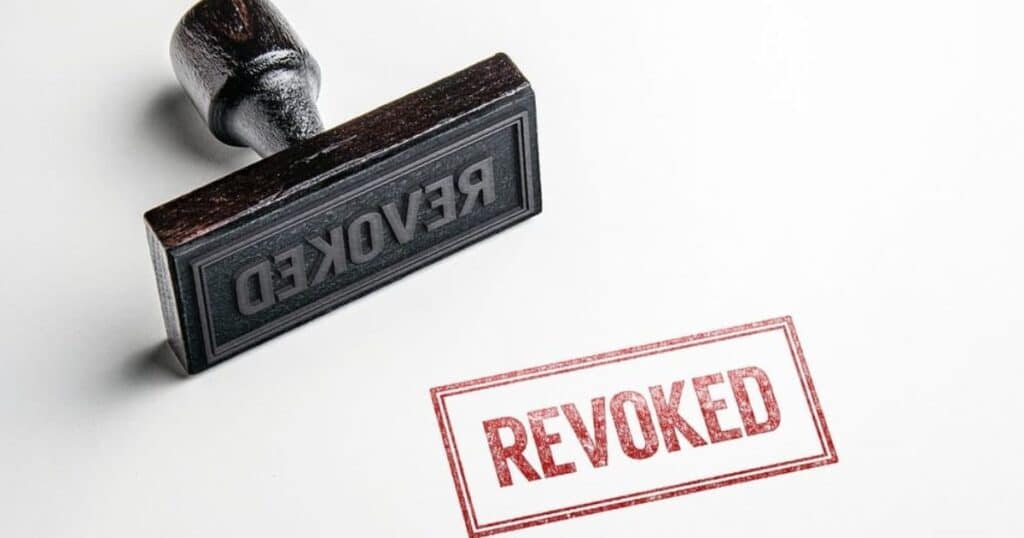Santa Barbara County, California, was one of the first to pass legislation for legal cannabis cultivation in 2018. With that came licensing fees, renewed yearly, and quarterly taxes.
But only 49 percent of the county’s legal cannabis operators reported or paid these taxes on time – a problem that has caused Santa Barbara County to take action.
In response to the lack of payment, the Board of Supervisors affirmed that operators must file quarterly reports and make tax payments within 60 days of the due date. Failure to do so results in their business license being revoked or not renewed.
This addition to the ordinance goes into effect for reports and taxes due on or after August 17, 2023. Another hearing is set for August 22 to discuss increasing fees.
It’s clear that Santa Barbara County was willing to take licensing/renewal fees from cultivators for the past five years, and now they want to revoke their licenses. The county itself was partly responsible for this problem by licensing mega-grows out there to get these residual licensing fees.
With increasing demand from more operators vying for limited resources, Santa Barbara County is pushing all the problems off onto those who have already been licensed.
Why is the County Threatening Revoking Licenses?
Santa Barbara County is revoking licenses for nonpayment of taxes in order to ensure that all cannabis businesses are compliant with tax laws and regulations. The county has already seen significant losses due to unpaid taxes, Which was expected to be around $16 million in cannabis tax revenue in 22-23 but is expected to only bring in around $6 million from businesses operating in the county.
This is not the first action taken by Santa Barbara County in order to ensure tax compliance among cannabis businesses. In 2020, the Board of Supervisors voted to increase cannabis business license fees and threatened noncompliant businesses with increased as fines. However, it appears that this measure was not enough to motivate businesses to make timely tax payments.

As a result, the county has decided that license revocation is the best way to ensure compliance and collect the taxes it is owed. This measure allows them to target those who are deliberately dodging their tax obligations, as well as those who may be unaware of their responsibilities or simply unable to make payments due to financial hardship.
The county hopes that this new policy will be an effective way to ensure cannabis businesses are paying their taxes on time and getting the revenue they are owed. This move is also seen as a way to protect smaller, local cannabis business owners from being undercut by larger, more established operations that may be able to afford noncompliance with tax regulations.
Impact of Revoking Licenses
The impact of revoking licenses is twofold, affecting both legal and illegal growing operations.
For legal cannabis operators, not only will their licenses be revoked or not renewed if they fail to comply with the regulation, but also they may face strict fines by the county. This could have a devastating impact on their businesses, leading to financial hardship and possibly the closure of their operations.
For illegal growers, enforcement of stricter regulations means a further crackdown on their activities. The Santa Barbara County Sheriff’s Office has been actively pursuing illegal cannabis cultivators and confiscating their products.
In just the third quarter of 2023 alone, they confiscated over 2,600 pounds of dried product worth $3.4 million.
The Real Problem Lies Beyond Santa Barbara
The problem of Santa Barbara County revoking cannabis licenses for non-payment of taxes is rooted in the reality that the market is over-saturated.
Companies are vying for limited resources, and growers are facing difficulties competing with their peers, not to mention pressure from illegal operations. All these factors have resulted in a vast oversupply which has adversely affected the cannabis industry as a whole.
The county has also been pushing limits on permits and acreage, with eight projects currently on appeal and 56 licenses pending in both the inland cannabis zone and the one in Carpinteria.
This has further exacerbated the issue of over-saturation, leading to competition for already scarce resources. The four growers who withdrew their licenses this year were likely unable to compete in an already crowded market.

The reality of the situation is that over-saturation, competition for limited resources, and an increase in illegal activity have all led to a problem that Santa Barbara County must now address.
The county’s response has been to introduce stricter tax laws and increased fees for memberships in the CCA. But how effective will that be in solving the problem? That remains to be seen.
Santa Barbara County is no stranger to controversy. Recently, it was embroiled in a high-stakes drama involving a lawsuit filed by Elliot Lewis of Catalyst against Glass House Farms, whose business operations were previously located in Santa Barbara County.
In the suit, Lewis alleges that Glass House is “one of the largest, if not the largest, black marketers of cannabis in the State of California, if not the country,” and calls for an audit of their operations.
Not surprisingly, Glass House Farms filed a defamation lawsuit against Lewis shortly after the filing of the original suit.
The controversy has yet to be fully resolved, but it does highlight some of the issues surrounding cannabis regulation around Santa Barbara County and how large operators can sometimes take advantage of regulations or loopholes in order to increase their profits.
Enjoyed that first hit? Come chill with us every week at the Friday Sesh for a freshly packed bowl of the week’s best cannabis news!

















